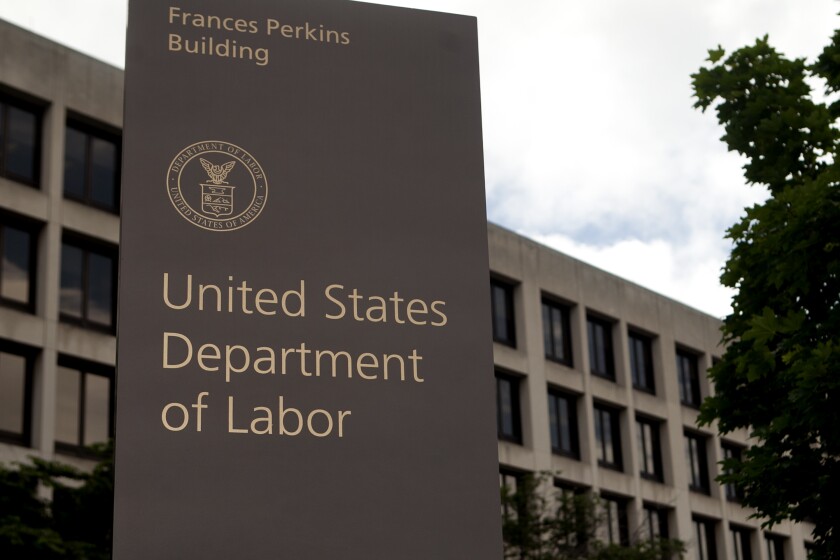Wisconsin-based Marshfield Clinic Health System Inc. heads into the market as soon as Tuesday with a nearly $500 million new money and refunding issue that will restructure debt, fund acquisitions, and provide a cushion to manage through the COVID-19 pandemic’s wounds.
About $330 million will sell using a tax-exempt structure through the Wisconsin Health and Educational Facilities Authority. The clinic will sell another $143 million using a taxable structure that doesn't require a conduit issuer. The size was subject to change depending on the market.
Citi has the books and BofA Securities and JPMorgan are also serving as underwriters. Ponder & Co. is advising the system.

The finance team posted a supplement Monday to the offering statement notifying potential investors that Marshfield has a commitment from Assured Guaranty Municipal Corp. to provide coverage on any or all of the bonds with the decision expected at pricing. The bonds are secured by a gross revenue pledge of the obligated group.
The deal achieves a series of goals for the system as it seeks to “restructure existing debt to increase our long-term committed capital,” Janette Townsend, treasurer and chief investment officer, said in a recorded investor presentation. “We are looking for some lower costs, to lower the cost and risk profile of our overall portfolio. We are also looking to preserve operating cash and provide greater liquidity to help manage through the operating disruption that is resulting from the pandemic.”
The latter is being aided by $100 million in tax-exempt debt to fund strategic acquisitions including St. Clare Hospital from the Ascension system — instead of using cash as originally planned — and $100 million of taxables for liquidity. The deal also allows the system to manage amortization and minimize the impact of maximum annual debt service coverage.
The deal carries A-minus ratings from Fitch Ratings and S&P Global Ratings. Ahead of the issue, S&P moved its outlook to negative from stable. Fitch Ratings had already assigned a negative outlook. The system has about $1.3 billion of debt.
“The outlook revision reflects our view of Marshfield's increased pro forma debt levels and weak pro forma maximum annual debt service coverage at a time when operations are still light as a result of its acute care strategy as well as ongoing pressures from the COVID-19 pandemic and the recession," said S&P analyst Suzie Desai.
The system will operate nine hospitals once planned acquisitions and new construction is completed. The system generates $2.6 billion in revenues with its health plan accounting for $1.3 billion of revenues. MCHS's service area includes north, central and western Wisconsin and 11 counties in the Upper Peninsula of Michigan.
The U.S. Small Business Administration and the Treasury Department relaunched the Paycheck Protection Program on Monday to new borrowers, prioritizing loans from community lenders.
Growth in small business jobs and wages declined last month as a result of the novel coronavirus pandemic, according to payroll giant Paychex.
The economic fallout from the coronavirus pandemic is continuing.
The system began a transformation in 2014 and has grown from just a couple facilities into seven hospitals through either acquisitions or by building new facilities while it’s also divested some non-core services. “We have a strong market and brand position and we have been successful in executing on our strategic plan,” Gordon Edwards, chief operating and financial officer, said in a recorded investor presentation.
The system said it has liquidity in place to manage COVID-19 strains, with access to credit lines and the ability to adjust capital spending. It has an existing $95 million line and is pursuing a $75 million additional line. The system headed into the pandemic with 160 days cash on hand with $1.2 billion of cash and investments.
The system is offsetting some of the COVID-19 hit by furloughs and temporary salary reductions for leadership, including some physicians and management, reductions in contracted employees and flexing staff to lower volumes. Non-essential capital spending has also been deferred and it is deferring Social Security contributions, as permitted by the relief packages.
MCHS received $52.3 million in stimulus from the first and second distributions as well as $102 million in accelerated Medicare payments from federal relief packages.
The clinic began phasing in elective surgeries in mid-May. “This is not turning on a light switch ... this is much more of a dial ... we may have to dial backwards as well" depending on the needs of community, patients, and supplies, Edwards said of the challenges posed by ramping up services while at the same time being prepared for possible resurgences of the disease.
“The negative outlook reflects Fitch's view that, although MCHS has implemented operational and process improvements that should allow for continued operating improvement, improvements are likely to be slow to materialize based on the challenges of the coronavirus pandemic,” Fitch said.





